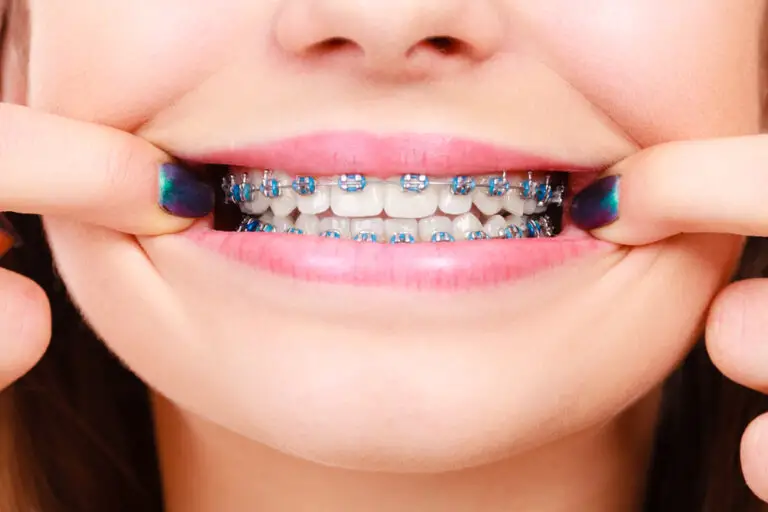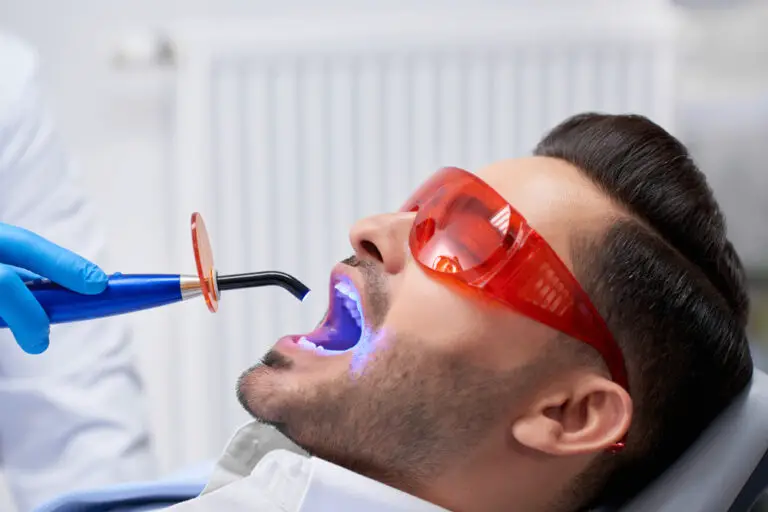If you’re experiencing tooth sensitivity, you may be wondering if your teeth can recover from it. The good news is that in many cases, teeth can recover from sensitivity with the right treatment and care. Tooth sensitivity usually occurs when the underlying layer of your teeth, the dentin, becomes exposed. This can happen due to erosion and gum recession.
There are several causes of tooth sensitivity, including brushing too hard, grinding your teeth, and consuming acidic foods and drinks. If you’re experiencing tooth sensitivity, it’s important to see your dentist to determine the cause and the best course of treatment. Your dentist may recommend desensitizing toothpaste, fluoride treatments, or other remedies to help alleviate your symptoms. In addition to professional treatment, there are also steps you can take at home to care for your teeth and prevent further sensitivity.
Understanding Tooth Sensitivity

If you experience a sharp pain or discomfort in your teeth when consuming hot or cold food and beverages, or when brushing or flossing, you may have tooth sensitivity. Tooth sensitivity is a common dental problem that affects many people. In this section, we will discuss the causes and symptoms of tooth sensitivity.
Causes of Tooth Sensitivity
There are several reasons why you may experience tooth sensitivity. Some of the most common causes include:
- Tooth enamel erosion: The enamel is the outermost layer of the tooth. When it wears away, it exposes the dentin, which is a sensitive layer of the tooth.
- Gum recession: When the gums pull back from the teeth, the sensitive roots become exposed.
- Tooth decay: Cavities can cause sensitivity when they reach the inner layers of the tooth.
- Aggressive brushing: Brushing your teeth too hard can wear away the enamel and cause sensitivity.
- Teeth grinding: Grinding your teeth can cause them to become sensitive due to the pressure and friction.
Symptoms of Tooth Sensitivity
The most common symptom of tooth sensitivity is a sharp pain or discomfort when consuming hot or cold food and beverages, or when brushing or flossing. Other symptoms may include:
- Pain when biting or chewing
- Sensitivity to air or cold temperatures
- Discomfort when consuming sweet or acidic foods and beverages
- Discomfort that lasts for several minutes after the trigger is removed
It is important to talk to your dentist if you experience tooth sensitivity. They can help determine the underlying cause and recommend appropriate treatment options.
Can Teeth Recover from Sensitivity
Dealing with tooth sensitivity can be quite uncomfortable and can affect your daily life. But can your teeth recover from sensitivity? The answer is yes, in some cases.
The recovery of your teeth from sensitivity depends on the cause of the sensitivity. If the sensitivity is caused by tooth decay or gum disease, then the sensitivity can be treated by addressing the underlying issue. However, if the sensitivity is caused by enamel erosion, the recovery may be limited.
Here are some ways you can help your teeth recover from sensitivity:
- Use a desensitizing toothpaste: Desensitizing toothpaste can help reduce tooth sensitivity by blocking the tubules that lead to the nerves in your teeth. Use it regularly for at least a few weeks to see if it helps.
- Avoid acidic foods and drinks: Acidic foods and drinks can erode your tooth enamel, leading to sensitivity. Reduce your intake of acidic foods and drinks such as citrus fruits, soda, and sports drinks.
- Practice good oral hygiene: Brush your teeth twice a day with fluoride toothpaste and floss regularly. Good oral hygiene can help prevent tooth decay and gum disease, which can cause sensitivity.
- Consider dental treatments: If your sensitivity is severe, your dentist may recommend dental treatments such as fillings, dental bonding, or a root canal to address the underlying issue.
It’s important to note that recovery from tooth sensitivity may take time and may not be possible in all cases. If you’re experiencing tooth sensitivity, it’s best to consult with your dentist to determine the underlying cause and the best course of treatment for you.
Methods to Help Teeth Recover from Sensitivity

If you are experiencing tooth sensitivity, there are several methods you can try to help your teeth recover. In this section, we will discuss two main categories of methods: home remedies and dental treatments.
Home Remedies
There are several home remedies that can help relieve tooth sensitivity. Here are some of the most effective ones:
- Saltwater rinse: Gargling with a saltwater rinse can help reduce inflammation and alleviate pain symptoms from sensitive teeth. Mix a teaspoon of salt with a cup of warm water and swish it around your mouth for about 30 seconds before spitting it out.
- Oil pulling: This is an Ayurvedic practice that involves swishing oil around your mouth to remove bacteria and improve oral health. Sesame or coconut oil are the most commonly used oils for this practice. Swish a tablespoon of oil around your mouth for about 20 minutes before spitting it out and rinsing your mouth with warm water.
- Avoid acidic foods and drinks: Foods and drinks that are high in acidity can erode your tooth enamel and make your teeth more sensitive. Limit your intake of citrus fruits, soda, and wine.
- Use a soft-bristled toothbrush: Brushing your teeth too vigorously or using a hard-bristled toothbrush can wear down your tooth enamel and expose the sensitive dentin underneath. Use a soft-bristled toothbrush and gentle strokes to avoid further damage.
Dental Treatments
If home remedies don’t provide enough relief, you may need to seek dental treatment to help your teeth recover from sensitivity. Here are some of the most common dental treatments:
- Desensitizing toothpaste: This type of toothpaste contains compounds that block the transmission of pain signals from your teeth to your nerves. Use it regularly to help reduce tooth sensitivity.
- Fluoride treatment: Fluoride is a mineral that can help strengthen your tooth enamel and make it more resistant to erosion. Your dentist may apply a fluoride gel or varnish to your teeth to help them recover.
- Dental bonding: If your tooth sensitivity is caused by exposed root surfaces, your dentist may apply a bonding agent to cover the exposed area and protect it from further damage.
- Gum grafting: If your tooth sensitivity is caused by receding gums, your dentist may recommend a gum grafting procedure to restore your gum tissue and protect your teeth.
Overall, tooth sensitivity can be a painful and uncomfortable condition, but there are several methods you can try to help your teeth recover. If your symptoms persist or worsen, be sure to consult with your dentist to determine the best course of treatment for your individual needs.
Preventing Tooth Sensitivity

If you’re someone who has experienced tooth sensitivity, you know how uncomfortable it can be. The good news is that there are several ways to prevent it from happening in the first place. Here are some tips to help you avoid tooth sensitivity:
Proper Oral Hygiene
One of the most important things you can do to prevent tooth sensitivity is to maintain proper oral hygiene. This includes brushing your teeth twice a day with a soft-bristled toothbrush and fluoride toothpaste. Make sure to use gentle strokes, rather than vigorous or harsh scrubbing, and avoid using an abrasive toothpaste.
Flossing daily is also important for maintaining good oral hygiene. This helps to remove plaque and food particles from between your teeth and along the gumline. If you’re not sure how to floss properly, ask your dentist or dental hygienist for a demonstration.
Dietary Changes
Your diet can also play a role in preventing tooth sensitivity. Acidic foods and drinks, such as citrus fruits and soda, can wear away tooth enamel over time, making your teeth more sensitive. Try to limit your intake of these types of foods and drinks, or rinse your mouth with water after consuming them.
Eating a diet that is rich in calcium and vitamin D can help to strengthen your teeth and prevent sensitivity. Good sources of calcium include dairy products, leafy greens, and almonds, while vitamin D can be found in fatty fish and fortified foods.
In addition to these dietary changes, it’s also important to avoid grinding your teeth, which can wear down tooth enamel and cause sensitivity. If you grind your teeth, talk to your dentist about getting a mouthguard to wear at night.
By following these tips, you can help to prevent tooth sensitivity and keep your teeth healthy and strong.
Frequently Asked Questions
What causes sudden tooth sensitivity?
Sudden tooth sensitivity can be caused by a variety of factors such as tooth decay, gum disease, tooth fracture, worn out fillings, and teeth grinding. Acidic foods and drinks can also contribute to tooth sensitivity.
How can I reduce tooth sensitivity?
You can reduce tooth sensitivity by practicing good oral hygiene, avoiding acidic foods and drinks, using a soft-bristled toothbrush, and using toothpaste specifically designed for sensitive teeth. You can also wear a mouthguard at night if you grind your teeth.
Can tooth sensitivity be cured?
Tooth sensitivity can be managed and reduced, but it cannot be completely cured. However, with proper oral hygiene and care, you can prevent tooth sensitivity from worsening and causing further damage to your teeth.
What are the symptoms of sensitive teeth?
The symptoms of sensitive teeth include sharp and sudden pain when consuming hot, cold, sweet, or acidic foods and drinks. You may also experience discomfort when brushing or flossing your teeth.
What is desensitizing toothpaste?
Desensitizing toothpaste contains compounds that block the nerve pathways that cause tooth sensitivity. It is recommended to use desensitizing toothpaste regularly for several weeks to see results.
Does broken tooth sensitivity go away?
Broken tooth sensitivity may go away on its own, but it is important to seek dental treatment to prevent further damage and infection. Your dentist may recommend a filling, crown, or root canal to address the issue.






